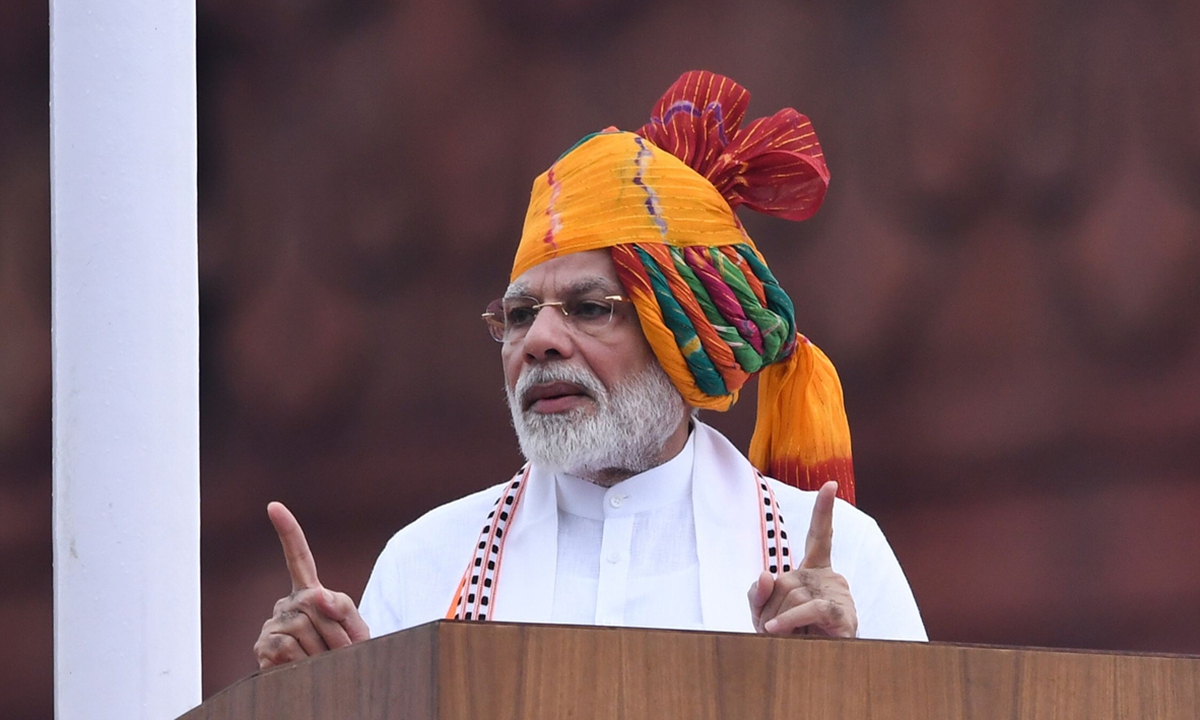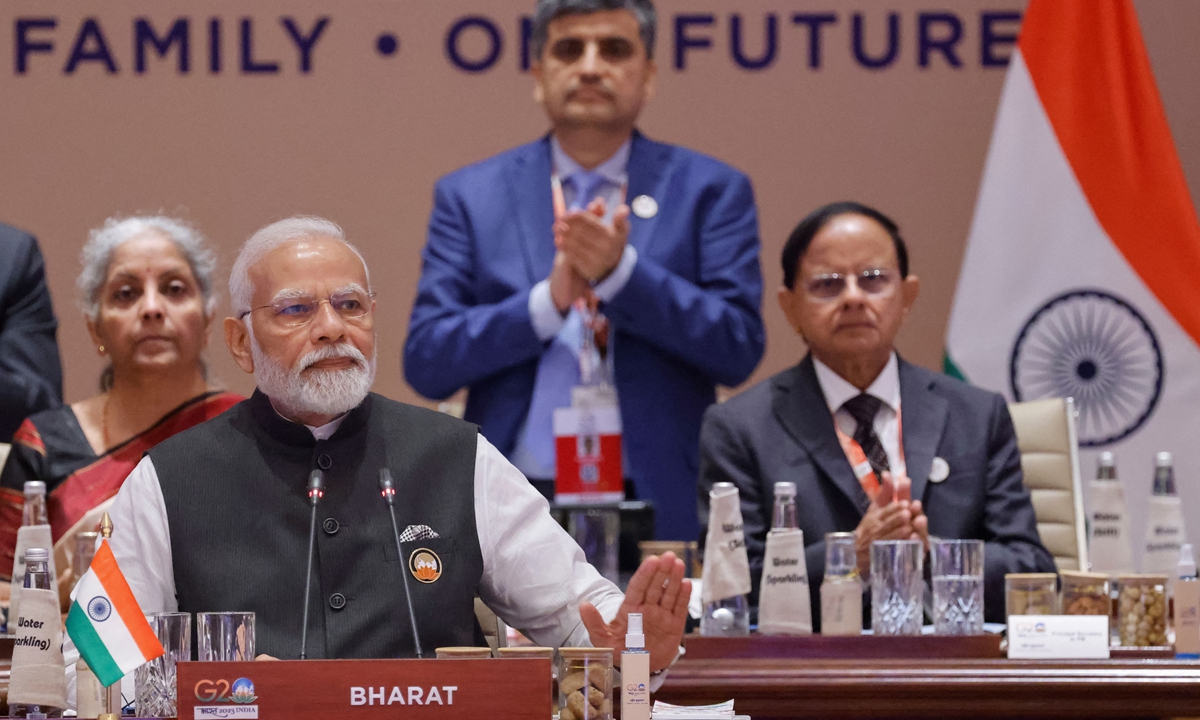
Indian Prime Minister Narendra Modi File photo:VCG
By shuttling between both Russia and Ukraine, Prime Minister Narendra Modi may be hoping to use "yoga diplomacy" to show India's flexibility in bridging the gap between conflicting parties. However, strength is what New Delhi lacks in making "yoga diplomacy" successful this time, analysts said.
On Wednesday, Modi began his trip to Poland and Ukraine, where the premier has pledged to campaign for a peaceful resolution to the Russia-Ukraine conflict.
After Poland, Modi will visit Ukraine on Friday, becoming the first Indian prime minister to make a trip to the country since diplomatic relations were established more than three decades back.
Modi's Ukraine trip follows his July 8-9 visit to Moscow, which drew criticism from the US and Ukrainian President Volodymyr Zelensky.
"I look forward to the opportunity to ... share perspectives on peaceful resolution of the ongoing Ukraine conflict," Modi said in a statement on Wednesday before his departure. "As a friend and partner, we hope for an early return of peace and stability in the region."
In recent years, India has been flaunting its "yoga diplomacy," the term media outlets have used to describe the approach New Delhi is taking to assert its rising global influence by bringing nations together and bridging gaps.
Modi's visit to Ukraine embodies this "yoga diplomacy," which seeks to demonstrate the country's ability to engage with both Russia and Ukraine, and alleviate concerns among several Western countries over its previous visit to Russia, Chinese experts said.
However, they expressed doubt that the Indian leader's move will be anything more than just to show its existence and believe it will not play a substantial role in alleviating the already escalating crisis.
New Delhi lacks the strength and influence to bridge gaps between Moscow and Kiev at this moment, as its influence is very limited in Europe, not to mention the fact that room for negotiation between two sides is shrinking now due to Ukraine's offensive in Russia's Kursk region, Long Xingchun, a professor at the School of International Relations at Sichuan International Studies University, told the Global Times.
Ukraine's incursion into Kursk means there will be no talks between Moscow and Kiev until Ukraine is completely defeated on the battlefield, Dmitry Medvedev, deputy head of Russia's Security Council, said on Wednesday, per Reuters.
"Does India have the strength to bring both sides to the negotiating table and offer a cease-fire proposal that satisfies both sides? This is a question," said Long.


